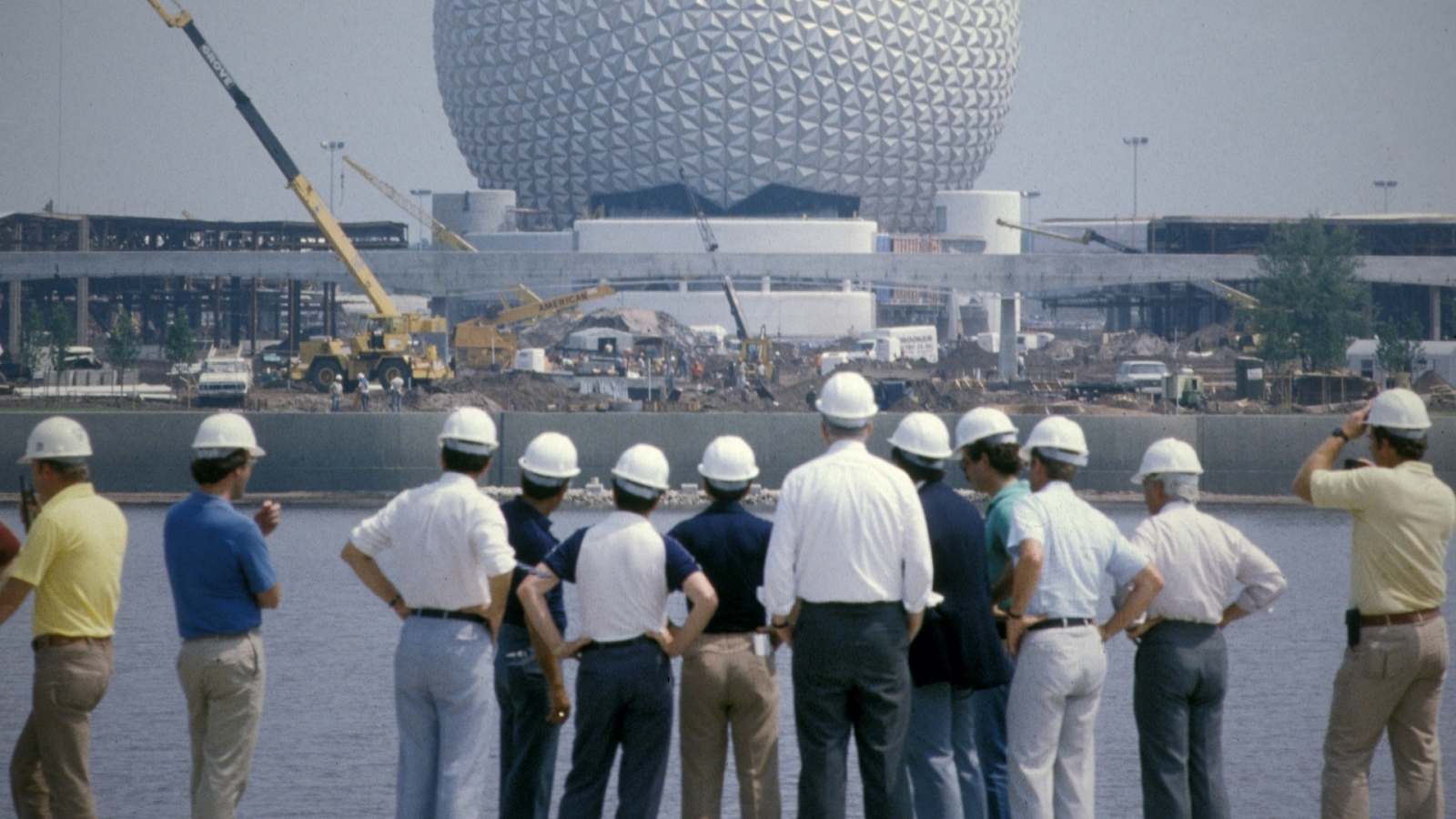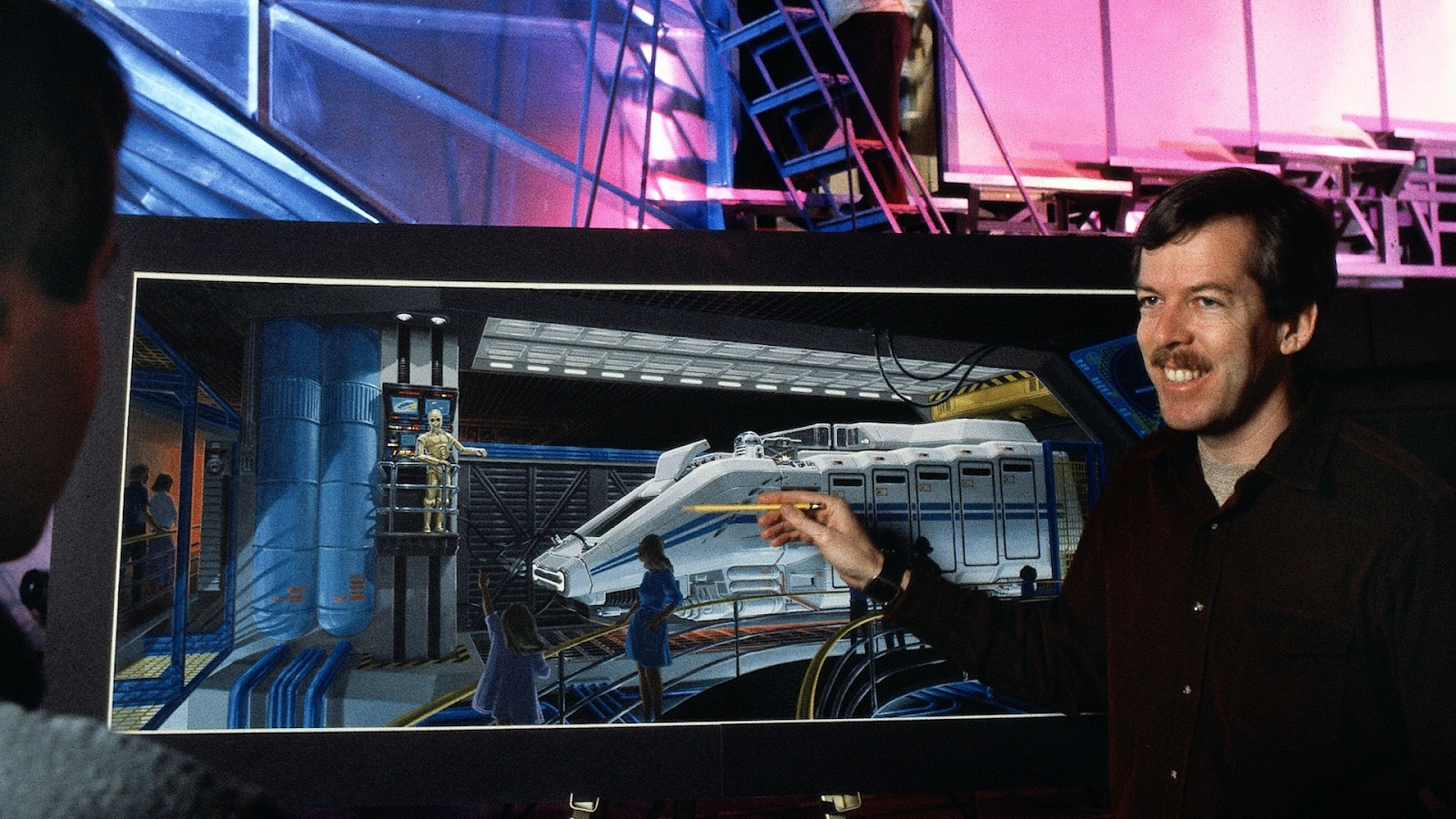Disney fans got a taste of what Disney+ would have to offer this summer at the D23 Expo. One of the highlights for me was the privilege of interviewing Leslie Iwerks about her documentary series, The Imagineering Story. Leslie is the daughter of Imagineer Don Iwerks and the granddaughter of Ub Iwerks, Walt Disney’s collaborator on Mickey Mouse and the genius behind many of the company’s film innovations. Prior to the interview, Leslie gave a presentation at the Disney+ booth about the series and many of her answers reference the on stage conversation that occurred prior. I recommend watching the presentation before reading our interview.
Alex: You mentioned this had started as a film and then about five years ago it progressed into a series. What was that process like of taking what you had started as a film and dissecting it into episodic format?
Leslie: Well, we had conducted I'd say almost 250 interviews over a course of five years. Or maybe it was four years. And then the last year we started to edit it and some of it we had kind of forgotten because we shot it four years earlier. But we were commissioned to shoot for about three to four years and then start editing after that. And so once we started figuring out what our storyline was and what are the ups and downs and trials and tribulations and whatnot, then we started getting more and more archival footage to support those story points, and going back into the archives and finding, like I said, I think we scoured like 82,000 individual items of archival material. And it was just a matter of what the most dramatic and interesting bites were, but also what archivally we had to support that and what material we had to support that. And we would also go and shoot new footage, new B-roll and whatnot. So I think that's just kind of how it all sort of came together.
Alex: And you mentioned some of the Imagineers names, Marty Sklar in particular was alive when this project started and we've lost a couple of Imagineering legends throughout the years. Did that at all change the narrative or the way that you approached them as individuals in the story?
Leslie: It didn't really change the way I approached. Obviously, I was pretty devastated to learn of Marty's death and he was a huge inspiration for me in the making of this film. So, of course I wanted him to see it to completion, but his story is in there and I'll leave some things for surprise. But, as I said, he and I collaborated on the original sort of structure and layout and treatment, which ultimately got approved, and so I think that he's in this film as much as I am, as far as our storytelling and our narrative and what we wanted people to know.
Alex: And this story, this company, really has generational meaning for you. Being this close to the material, do you think that changes the way that you approach things? I guess it's very personal for you, what was that like diving into this history that has crisscrossed with your family and the people that you're close to?
Leslie: So, as I mentioned earlier that I grew up behind the scenes at Disneyland and Epcot and going with my dad to the Florida parks and going backstage and seeing all the magic behind the scenes, and I think for me as a kid, the magic to me was almost more backstage than it was on stage. And I really got to learn and become passionate about the behind the scenes making of things. That's where the magic was for me. And so as a USC film student turned documentary filmmaker, I've always been interested in knowing how things work and how things are done and what's the real story behind something. So I think that growing up behind the scenes that Disney really did inspire my own career to become a filmmaker and particularly documentaries that I find so fun to make. And so now, many years later, being able to do the same thing again and go behind the scenes, and at this point given unprecedented access, to now learn how Lincoln was done. As I said, my father's hand was the real model for Lincoln because his hand happened to be the right size. And so, that was kind of a fun little thing to have around the house as a kid, was this rubber hand that made us all laugh all the time and trick each other. And that was just one little teeny kernel of something but it did inspire kind of this fun, whimsical way of growing up. And now going back and really understanding how Lincoln was built and the technology that went into that, it was really fun. And then seeing how far those animatronics have come to today, it's just mind boggling that the storytelling that Walt infused into all of this has furthered the technology in ways we would never have anticipated.
Alex: A lot of Disney fans have learned about Imagineering through books, but obviously film and television have the capacity to reach a wider audience. What do you hope audiences take away from the series?
Leslie: I really hope that audiences really get to understand the depth and complexity that is Imagineering, and creativity and storytelling that is Imagineering. I think that they will be surprised as to how much has gone into this division that they never think about. You go to a theme park and you experience the face of it all, the magic of it all, the fun, the hospitality of it all, but what goes on behind the scenes is just so much dedication and passion and perseverance through thick and thin. And I like to say that Walt Disney created the happiest place on earth, but creating happiness is hard work, and that's what this series is about.
Alex: And my last question is, what do you think the biggest opportunity is for a series like this on a new platform like Disney+ going into it?
Leslie: Well, I think that with six hours of content and the parks constantly changing and evolving, the hope is that, and I think the intent is that, this will be an ongoing series.
You can stream The Imagineering Story exclusively on Disney+ starting November 12th.



